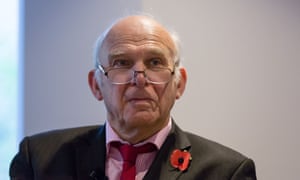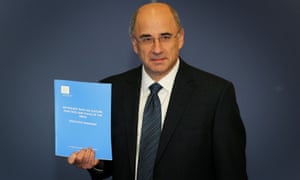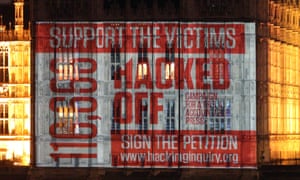
Vince Cable is to call on the government to get on with creating a system of press regulation that matches the recommendations of the Leveson inquiry, or risk a repeat of the scandals that led to it.
Speaking at an event organised by campaign group Hacked Off, the former business secretary will say that a new ministerial consultation on press regulation is delaying the implementation of Leveson’s recommendations, which were made following the phone-hacking scandal.
“The government decision to consult again on the framework for self-regulation has the political effect of stopping progress towards a solution based on the royal charter model,” he will tell an audience at the University of Westminster on Tuesday evening. “Suffice to say that the type of scandals which prompted Leveson will happen again in the absence of effective checks and balances.”

He is also expected to argue that the government’s failure to introduce new regulation exists within the context of a fear among politicians of powerful newspaper owners. .
“Nothing better illustrates the deficiency of genuine plurality than the fear which politicians still have of crossing newspaper proprietors or the belief that party advantage will accrue from sucking up to them,” he will say.
The speech is the fourth annual Leveson lecture organised by Hacked Off, which supported the creation of a press regulator backed by royal charter and has been heavily critical of industry-backed regulator Ipso.
The government announced the new 10-week consultation at the start of November to consider such issues as whether or not to introduce rules forcing newspapers to pay both sides’ costs in libel cases if they do not sign up to a royal charter-backed regulator. The move came just days after Ipso rival Impress gained recognition under the charter, which was meant to trigger the so-called cost-shifting rules.
Newspaper publishers have argued that cost-shifting would have a chilling effect on journalism and is essentially a form of blackmail to force them to sign up to state-backed regulation.
Cable will also suggest that regulation could be used to help tackle the spread of false information, particularly if firms such as Google were brought under a voluntary system.
He is expected to say: “There surely has to be accountability for the algorithms these companies use, with greater disclosure, and named individuals who can be summoned to face democratic scrutiny.”
“Bringing them within the framework of voluntary regulation, but with a regulator enjoying independence from the industry itself so it is genuinely faced with responsibility for retraction and redress, is a necessary next step which will also reassure the traditional print press that it is not being singled out for special punishment, as they claim.”

Cable’s hostility towards some parts of the media is well known. In 2010 he was recorded by two Telegraph journalists saying he had “gone to war with Murdoch” by intervening to block a takeover of Sky by the media mogul’s News Corp.
Exposing Cable’s views on Murdoch was deemed to be in the public interest by Ipso’s predecessor, the Press Complaints Commission. However, the way the sting against Cable and other ministers was carried out breached the organisation’s editorial code on subterfuge.
Cable’s speech comes just hours after the News Media Association (NMA), which represents the UK’s national and regional newspapers, took the first step towards launching a judicial review of the decision by the Press Recognition Panel to give the go-ahead to Impress.
In a pre-action letter, the NMA claims that the PRP decision was not legal because Impress, which is indirectly funded by former F1 tycoon Max Mosley, failed to meet criteria in areas such as its funding, what rules it imposes and how much support it has from the newspaper industry.
The NMA said it had been “advised that it has a powerful case that the Press Recognition Panel made serious and fundamental legal errors in its recognition of Impress”.